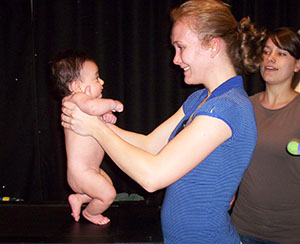
A lot of student protests are kind of a joke. Their feelings get hurt inexplicably, they camp in the president’s office, they demand ludicrous policy changes.
But sometimes they have a point.
Grad students at the University of Chicago are asking for a pretty reasonable change: the right to see how their “ballooning” student fees get distributed.
The Chicago Maroon reports that about 50 members of Graduate Students United held a protest on the quad Friday to demand the abolishment of the Student Life Fee, which runs $347 per quarter.
According to their “Unfeesible” petition (cute), the fee has gone up 45 percent in five years while wages have remained flat, meaning a grad assistant “earning $3,000 will pay more than 10 percent of her pre-tax teaching wages back to her employer”:
Where does the Student Life Fee go? We don’t really know, since our bills are not itemized. According to the Office of the Bursar, portions of the revenue are allocated to Student Health and Counseling Services, Student Activities, Campus Activities, and divisional programming, but more specific information is not readily available. We do know that we must pay the Student Life Fee in order to visit Student Health and Counseling Services, even though those of us on the University’s U-SHIP plan are also charged a $3,162 annual health insurance premium. Health care should be a benefit provided with fellowships and employment, not an additional expense, and the lines between health care costs, tuition, and other service costs must be sharply drawn.
They had a meeting last month to discuss the fee structure and other pressing issues for grad students, including child care:
Claire Roosien, a third-year graduate student in Near Eastern languages and civilizations, said that she believes that the University’s system of child-care stipends should be reformed.
“[Student-parents] who are making 20 [$20,000] per year are receiving the same child-care stipend as those who make 65 [$65,000]. Stipends should be tied to income and number of kids,” Roosien said.
For Elfenbein, the result of a steadily increasing SLF, along with other rising fees and unaddressed graduate student concerns, is reduced diversity among the graduate student body.
“We have to ask whether we want to include students who, perhaps, had some kids along the way, or have a disability, or don’t have a trust fund. If we want to have that kind of community, we have to claim it,” Elfenbein said.
These are really good questions for any school that wants a well-rounded student body, not just a certain number of non-white faces with well-off parents and an ethnic rainbow in the glossy PR materials.
The university, of course, doesn’t have to give these grad students everything they want. It’s a starting point for negotiation, or for further explanation as to why all these costs are going up (Obamacare perhaps?).
But it’s nice to see adults acting like adults, for a change.
Greg Piper is an assistant editor at The College Fix. (@GregPiper)
Like The College Fix on Facebook / Follow us on Twitter
IMAGE: Beth Nazario/Flickr
Like The College Fix on Facebook / Follow us on Twitter





Please join the conversation about our stories on Facebook, Twitter, Instagram, Reddit, MeWe, Rumble, Gab, Minds and Gettr.